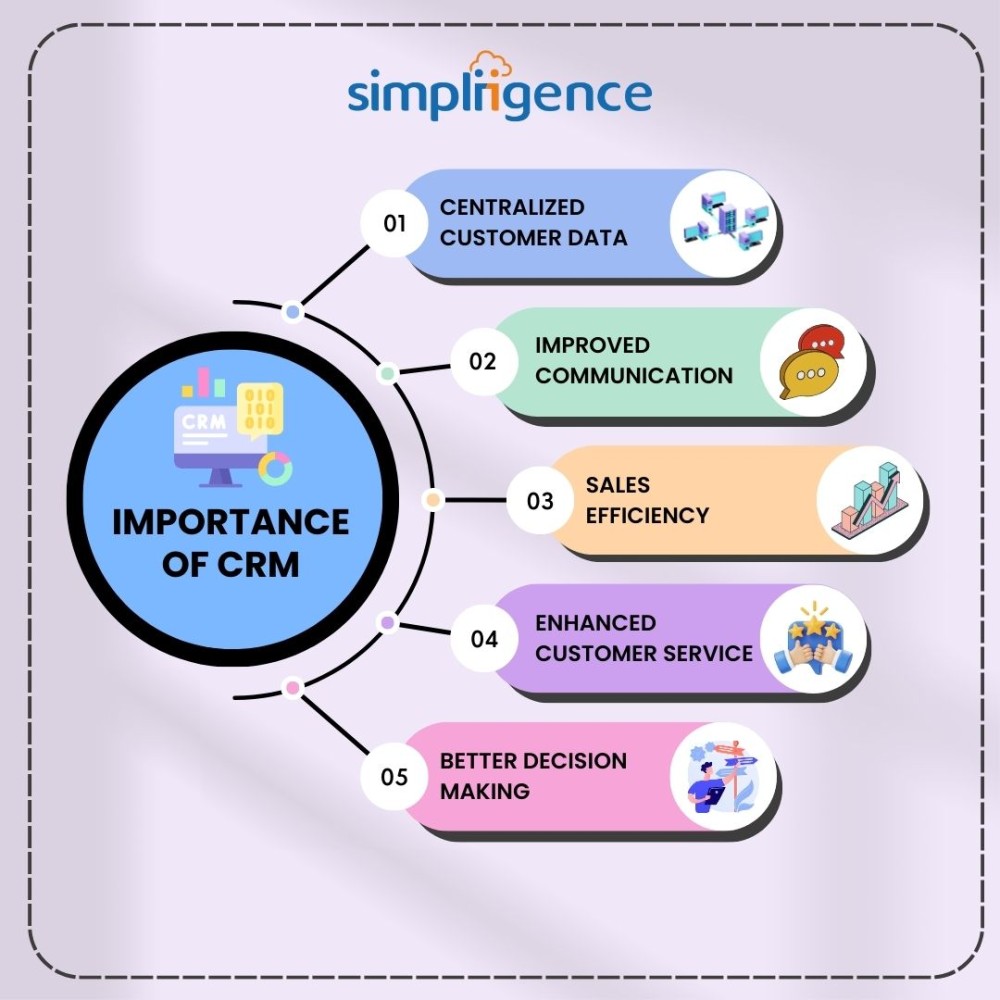Why do businesses need CRM?
Businesses of all sizes, including small and medium-sized, need CRM (Customer Relationship Management). CRM is a multifaceted tool that offers many benefits to businesses:

- Centralized Customer Data: With CRM, businesses can integrate and store all customer information in one centralized location. This includes contact details, purchase history, preferences, and any other relevant data. Having access to this comprehensive customer profile allows teams to understand and serve customers better. For example, sales representatives can quickly reference past interactions to personalize their approach, while marketing teams can tailor campaigns based on customer preferences.
- Improved Communication: CRM platforms offer a collaborative workspace where team members can share updates, notes, and insights in real-time. This fosters seamless communication across departments, ensuring that everyone is aligned and working towards common goals. For instance, a sales team can notify the marketing department about a new trend they’ve observed, prompting the creation of targeted campaigns to capitalize on it.
- Sales Efficiency: By automating repetitive tasks and standardizing processes, CRM systems enable sales teams to work more efficiently. For example, lead capturing can be automated through web forms or email campaigns, while follow-up reminders ensure that no opportunity falls through the cracks. Additionally, pipeline management features provide visibility into the sales process, allowing managers to allocate resources effectively and identify bottlenecks.
- Enhanced Customer Service: CRM empowers businesses to deliver exceptional customer service by providing insights into customer behavior and preferences. For instance, support agents can access a customer’s interaction history to understand their previous issues and provide personalized assistance. Moreover, CRM can enable proactive support by flagging potential issues based on customer data, allowing businesses to address concerns before they escalate.
- Better Decision-Making: CRM systems generate valuable insights through data analysis, helping businesses make informed decisions. For example, by analyzing sales trends and customer feedback, businesses can identify emerging market opportunities or areas for improvement in their products or services. Additionally, CRM analytics can provide predictive capabilities, allowing businesses to anticipate customer needs and adjust their strategies accordingly.
CRM is a comprehensive solution that touches every aspect of the customer journey, from initial contact to post-sale support. By harnessing the power of CRM, businesses can not only streamline their operations but also build stronger relationships with customers and drive sustainable growth.
As a business owner, coming up with a CRM strategy might be a daunting task. Strategic CRM consultant partners like Simpliigence can help you with identifying which CRM tool would best suit your business problem, implement and maintain the CRM for you.
At Simpliigence, we specialize in helping businesses leverage CRM to its fullest potential, efficiently and cost-effectively.
Contact us today to schedule a meeting and discover how CRM can transform your business. https://calendly.com/simpliigence
